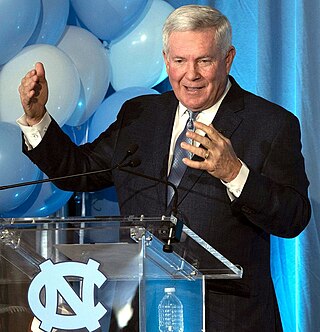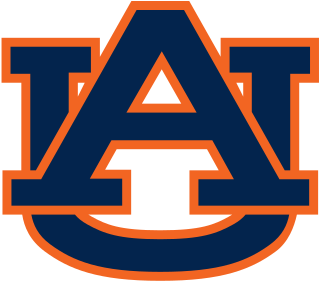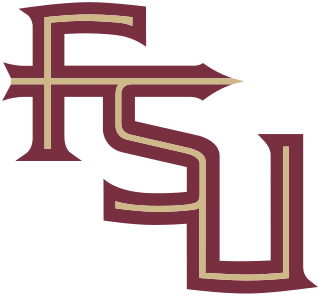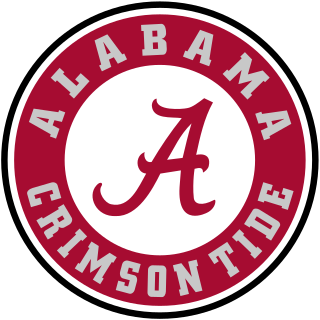Related Research Articles

The Bowl Championship Series (BCS) was a selection system that created four or five bowl game match-ups involving eight or ten of the top ranked teams in the NCAA Division I Football Bowl Subdivision (FBS) of American college football, including an opportunity for the top two teams to compete in the BCS National Championship Game. The system was in place for the 1998 through 2013 seasons and in 2014 was replaced by the College Football Playoff.

William Mack Brown is an American college football coach. He is currently in his second stint as the head football coach for the University of North Carolina, where he first coached from 1988 until departing in 1997, when he left Chapel Hill to become head coach for the University of Texas. In 2018, Brown was inducted into the College Football Hall of Fame. Two days after Carolina fired Larry Fedora in November 2018, Brown was announced to return as the Tar Heels' head coach after a five-year hiatus from coaching, which he spent as an ESPN analyst.

The BCS National Championship Game, or BCS National Championship, was a postseason college football bowl game, used to determine a national champion of the NCAA Division I Football Bowl Subdivision (FBS), first played in the 1998 college football season as one of four designated bowl games, and beginning in the 2006 season as a standalone event rotated among the host sites of the aforementioned bowls.

The Auburn Tigers football program represents Auburn University in the sport of American college football. Auburn competes in the Football Bowl Subdivision (FBS) of the National Collegiate Athletic Association (NCAA) and the Western Division of the Southeastern Conference (SEC).
The phrase "Game of the Century" is a superlative that was applied to several college football contests played in the 20th century, the first full century of college football in the United States. It is a subjective term applied by sportswriters to describe the most notable games of the period.
The 1997 NCAA Division I-A football season, play of college football in the United States organized by the National Collegiate Athletic Association at the Division I-A level, began in late summer 1997 and culminated with the major bowl games in early January 1998. The national championship was split for the third time in the 1990s. The Michigan Wolverines finished the season atop the AP Poll after completing a 12–0 campaign with a Big Ten Conference championship and a victory in the Rose Bowl over Washington State. The Nebraska Cornhuskers garnered the top ranking in the Coaches' Poll with a 13–0 record, a Big 12 Conference championship, and a win over Tennessee in the Orange Bowl. Michigan's Charles Woodson, who played primarily at cornerback, but also saw time on offense as a wide receiver and on special teams as a punt returner, won the Heisman Trophy, becoming the first primarily defensive player to win the award. The 1997 season was the third and final season in which the major bowl games were organized under the Bowl Alliance system. The Bowl Championship Series was instituted the following year.

The 1999 NCAA Division I-A football season saw Florida State named national champions, defeating Virginia Tech in the BCS Sugar Bowl.

The 2001 NCAA Division I-A football season was the first college football season of the 21st century. It ended with the University of Miami winning the national title for the fifth time.

The 2004 NCAA Division I-A football season was the highest level of college football competition in the United States organized by the National Collegiate Athletic Association (NCAA). The regular season began on August 28, 2004 and ended on December 4, 2004. The postseason concluded on January 4, 2005 with the Orange Bowl, which served as the season's BCS National Championship Game.

The Florida State Seminoles football team represents Florida State University in the sport of American football. The Seminoles compete in the NCAA Division I Football Bowl Subdivision (FBS) of the National Collegiate Athletic Association (NCAA) and the Atlantic Coast Conference (ACC). The Seminoles previously competed as part of the ACC Atlantic Division. The team is known for its storied history, distinctive helmet, fight song, colors, and many other traditions associated with the school.

The 2005 Orange Bowl was the BCS National Championship Game of the 2004 NCAA Division I-A football season and was played on January 4, 2005 at Pro Player Stadium in Miami Gardens, Florida. The game matched the USC Trojans against the Oklahoma Sooners. Both teams entered with undefeated, 12–0 records. Despite only being a 1-point favorite, USC defeated Oklahoma by a score of 55–19, led by quarterback Matt Leinart. ESPN named Leinart's performance as one of the top-10 performances in the first ten years of the BCS system.
The 2004 USC Trojans football team represented the University of Southern California in the 2004 NCAA Division I-A football season. The 2004 Trojans football team won the 2004 BCS National Championship by winning the 2005 Orange Bowl, that year's BCS National Championship Game. The team also won the AP title for the second year in a row. It was the Trojans' first undisputed national championship since 1972, and the second time a team had gone wire-to-wire, with the Trojans holding the number 1 spot in the polls all season. The team was coached by Pete Carroll in his fourth year with the Trojans, and played their home games in the Los Angeles Memorial Coliseum. The team is widely considered one of the greatest college football teams of all time.
The 1980 NCAA Division I-A football season saw a university from the state of Georgia take its first national title since 1942.
The 2008 Tostitos Fiesta Bowl was a college football bowl game. It was part of the 2007–2008 Bowl Championship Series (BCS) of the 2007 NCAA Division I FBS football season. Played annually since 1971, first at Sun Devil Stadium on the campus of Arizona State University in Tempe, Arizona through 2006, the game was played at 8 p.m. EST on January 2, 2008, at the University of Phoenix Stadium in Glendale, Arizona. The game featured the fourth ranked (BCS), Big 12 champion Oklahoma Sooners hosting the ninth ranked (BCS), Big East champion West Virginia Mountaineers. West Virginia defeated Oklahoma by a score of 48–28. The contest was televised on Fox.

The 2008 NCAA Division I FBS football season was the highest level of college football competition in the United States organized by the National Collegiate Athletic Association (NCAA).
The 2001 Sugar Bowl was a 2000–01 BCS game played on January 2, 2001. This 67th edition to the Sugar Bowl featured the Florida Gators, and the Miami Hurricanes, in an in-state rivalry game. Miami came into the game ranked 3rd in the BCS, 2nd in both the Coaches and AP Poll, at 10–1, whereas Florida came into the game ranked 7th in the BCS at 10–2. Sponsored by Nokia, the game was officially known as the Nokia Sugar Bowl.
The Bowl Championship Series (BCS) was a selection system used between 1998 and 2013 that was designed, through polls and computer statistics, to determine a No. 1 and No. 2 ranked team in the NCAA Division I Football Bowl Subdivision (FBS). After the final polls, the two top teams were chosen to play in the BCS National Championship Game which determined the BCS national champion team, but not the champion team for independent voting systems. This format was intended to be "bowl-centered" rather than a traditional playoff system, since numerous FBS Conferences had expressed their unwillingness to participate in a play-off system. However, due to the unique and often esoteric nature of the BCS format, there had been controversy as to which two teams should play for the national championship and which teams should play in the four other BCS bowl games. In this selection process, the BCS was often criticized for conference favoritism, its inequality of access for teams in non-Automatic Qualifying (non-AQ) Conferences, and perceived monopolistic, "profit-centered" motives. In terms of this last concern, Congress explored the possibility on more than one occasion of holding hearings to determine the legality of the BCS under the terms of the Sherman Anti-Trust Act, and the United States Justice Department also periodically announced interest in investigating the BCS for similar reasons.
The 2006 Michigan vs. Ohio State game was a regular-season college football game between the unbeaten Michigan Wolverines and the unbeaten Ohio State Buckeyes on November 18, 2006, at Ohio Stadium in Columbus, Ohio. Called the "Game of the Century," this was the first time in the rivalry series that the teams entered the matchup ranked No. 1 and No. 2 in the nation. In a game featuring lots of offense, Ohio State won 42–39.
Alabama Crimson Tide football under Nick Saban covers the history of the Alabama Crimson Tide football program since Nick Saban was hired as head coach in 2007. Alabama plays as part of the National Collegiate Athletic Association (NCAA) Football Bowl Subdivision (FBS) and is a member of the West Division of the Southeastern Conference (SEC). The Tide plays its home games at Bryant–Denny Stadium in Tuscaloosa, Alabama. Their overall official record under Saban is 189-27 (.875), 22 bowl game appearances with 16 victories, nine SEC West titles, eight SEC championships, and six national championships. Since 2008, Saban's teams have spent part or all of each season ranked No. 1 in national polls.

The 2020 Alabama Crimson Tide football team represented the University of Alabama in the 2020 NCAA Division I FBS football season. This was the Crimson Tide's 126th overall season, 87th as a member of the Southeastern Conference (SEC), and 29th within the SEC Western Division. They played their home games at Bryant–Denny Stadium in Tuscaloosa, Alabama, and were led by 14th-year head coach Nick Saban.
References
- 1 2 "Miscellaneous facts and records". Bowl Championship Series. 1 August 2012.
- ↑ "Heisman Trophy winners in bowl games". Yahoo! Sports. 2 January 2012.
- 1 2 "College Football National Champions: Do Preseason Rankings Matter?". Athlon Sports. 27 July 2012. Retrieved 3 August 2012.
- ↑ Tom Weir (6 December 2010). "Before UConn, who was worst-ever BCS bowl team?". USA Today.